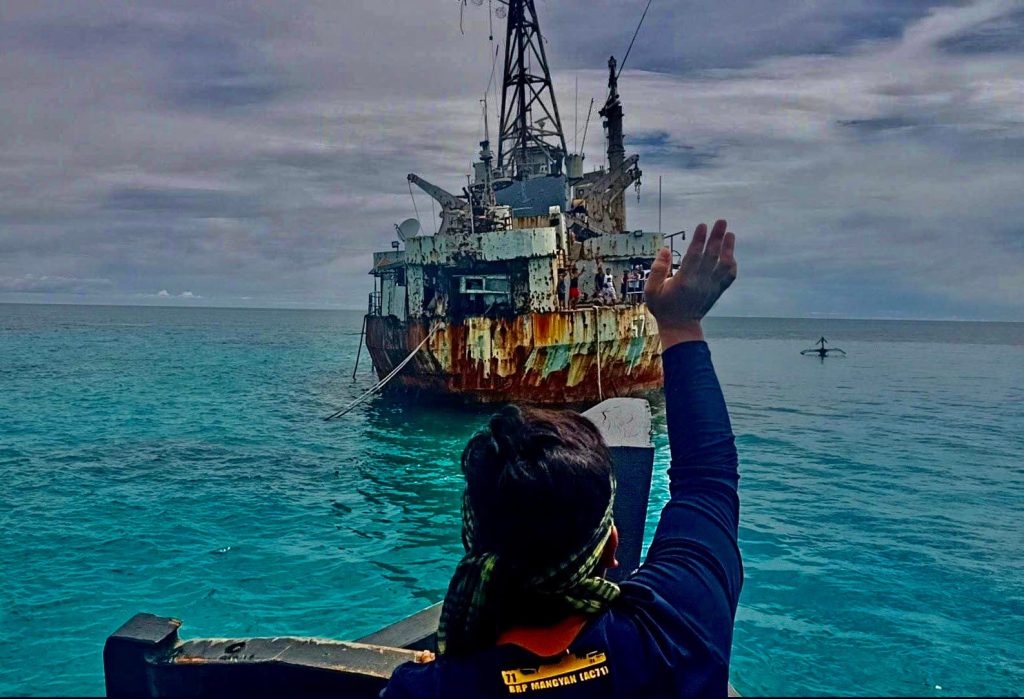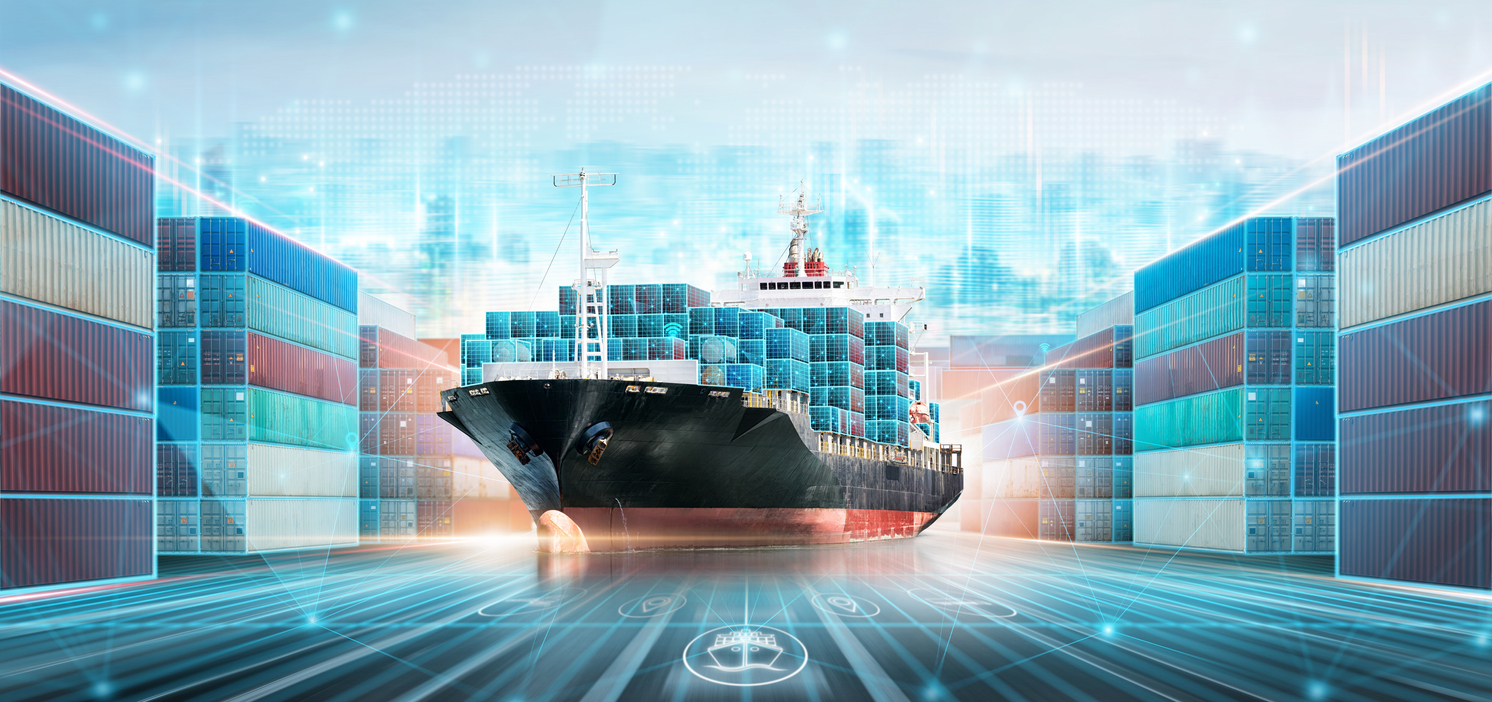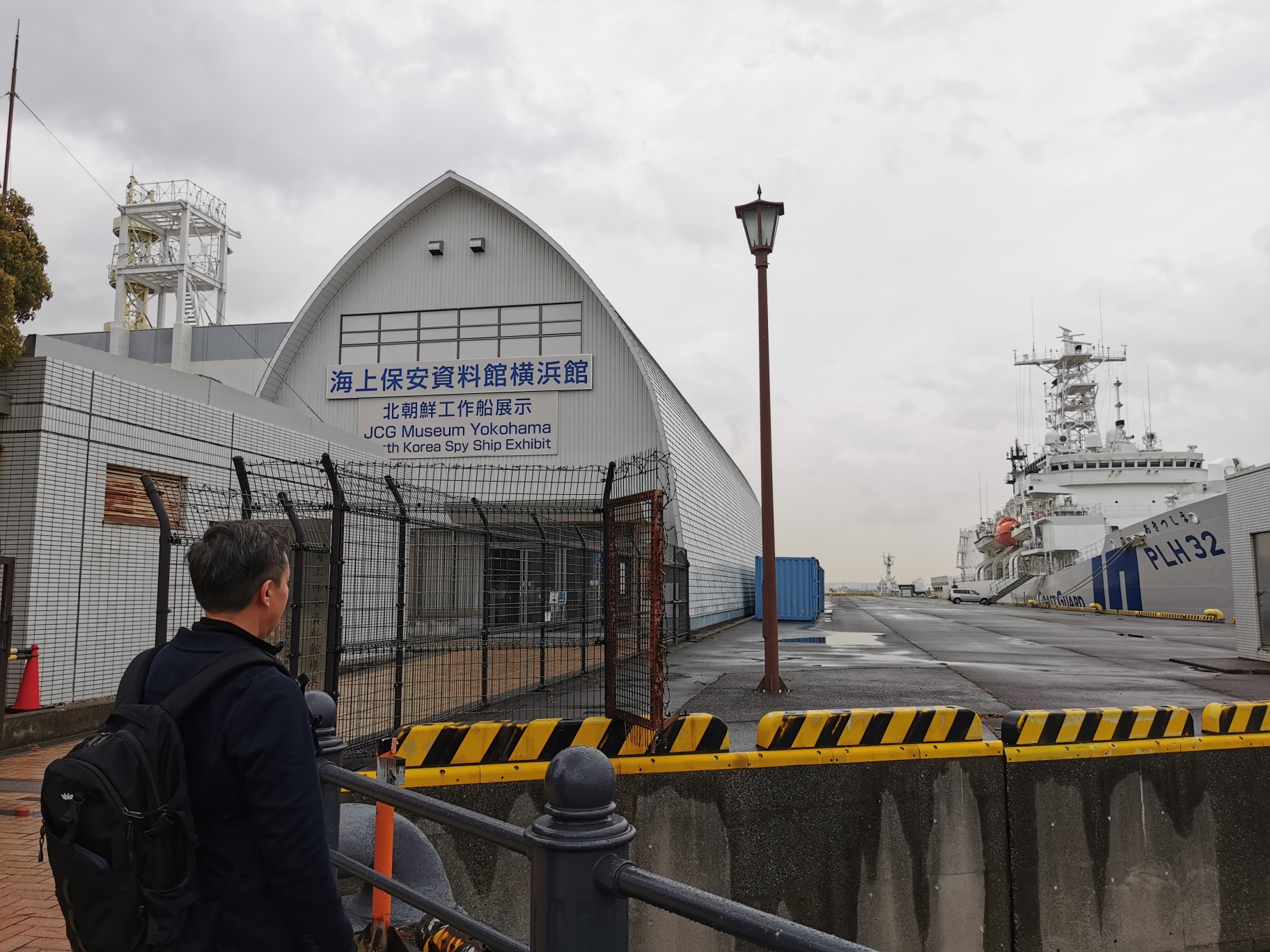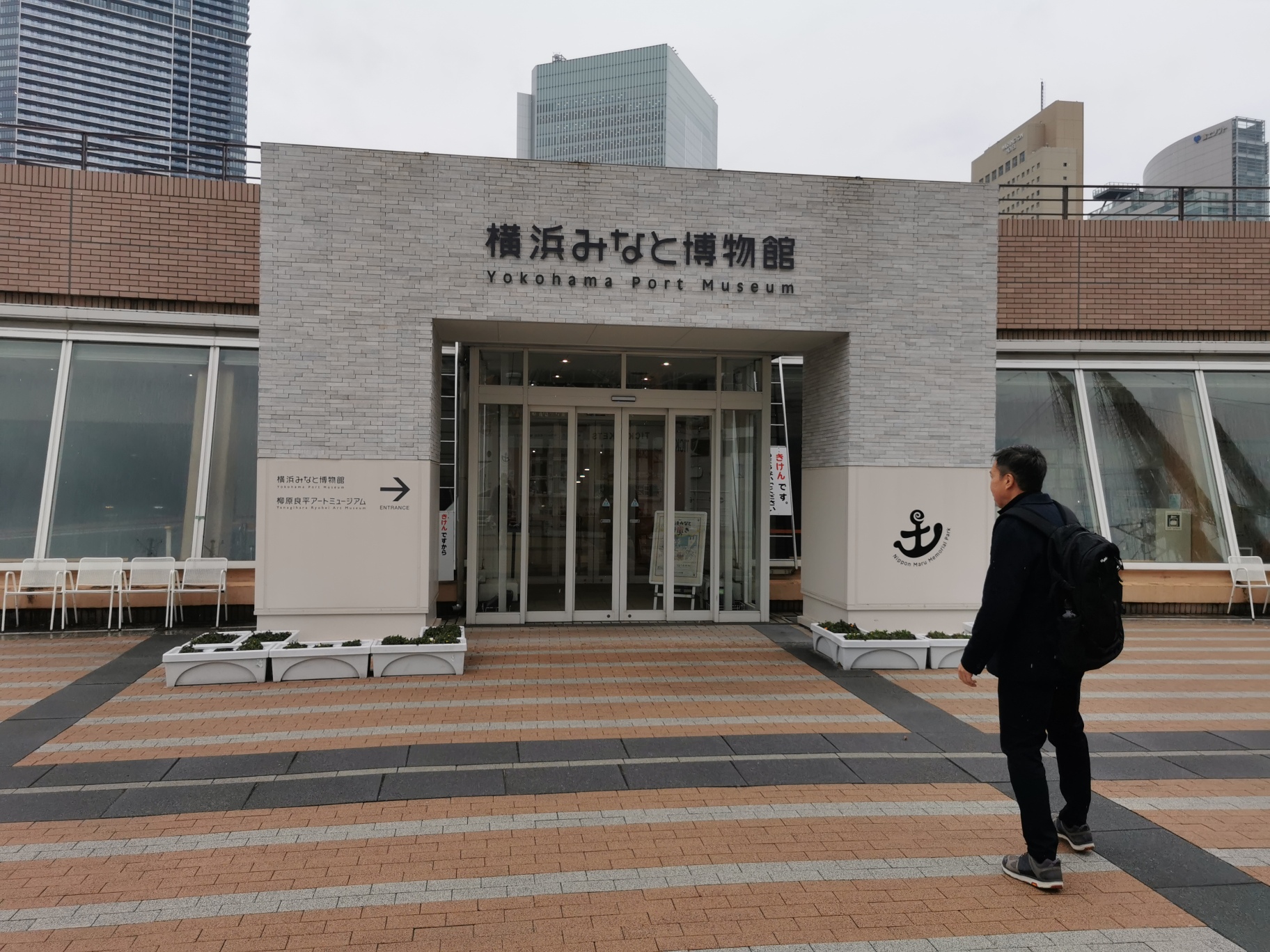The disputes concerning the West Philippine Sea, the official designation by the government of the Philippines to parts of the South China Sea that are included in the country’s exclusive economic zone, are far from being settled. Now that the Philippine government has a new leader, how will the country’s assertions of sovereignty fare?
Last July 12 marked the sixth anniversary of the 2016 South China Sea Arbitration Award. In 2014, the arbitration case the Philippines initiated against China was settled in favor of the former. It has since been acknowledged as a significant contribution to efforts to bring about a peaceful settlement of disputes in the South China Sea.
The tribunal authoritatively ruled that there is no basis for China’s claim that it has “historic rights” to resources within the sea areas that fall within the nine-dash line. The tribunal also made a ruling that certain actions made by China within the Philippines’ exclusive economic zone (EEZ) were unlawful as they violated the latter’s sovereign rights.
It has been established that China’s large-scale reclamation and construction of artificial islands and the large-scale harvesting of endangered marine species had aggravated the disputes in the West Philippine Sea or as China calls it, the South China Sea.
It was in 2012 when the Philippines under then-President Benigno Aquino III released administrative order No. 29 on the naming of the West Philippine Sea as under the Philippines’ EEZ. He also submitted an official map to the United Nations (UN).
Both administrative order No. 29 and the map declared that the West Philippine Sea includes “the Luzon Sea as well as the waters around within the adjacent to the Kalayaan Island Group and Bajo de Masinloc, also known as Scarborough Shoal.”
Six years later, the conflict remains as China continues to build and maintain military structures on Philippine islets, sandbars, reefs, and shoals, and China also intimidates Filipino local fishermen with its own fleet of militia fishing vessels and coast guard.

Experts weigh in
The issue is well discussed in the Philippines. Filipino and foreign experts continue to give their insights into the conflict.
In a recent webinar “Mare Clausum with Chinese Characteristics: China’s Lawfare in the South China Sea”, Filipino lawyer Jay L. Batongbacal and professor Clive Schofield gave presentations on how China, the Philippines, and other interested parties have responded to and behaved since the South China Sea Arbitration Award was granted.
The experts focused on China’s continued assertions of its supposedly legitimate and historic maritime claims in defiance of the ruling.
Professor Clive Schofield heads the research department at the WMU-Sasakawa Global Ocean Institute at the World Maritime University in Sweden. He is also with the Australian Centre for Ocean Resources and Security (ANCORS) at the University of Wollongong in Australia. Prof. Batongbacal is from the University of the Philippines College of Law and is considered an expert on the subject of the West Philippine Sea conflict.
Schofield called the Award a “landmark decision”.
He said: “It is the first international judicial interpretation of what constitutes ‘a regime of islands’ under Article 121 of the United Nations Convention on the Law of the Sea (UNCLOS).
“It also clarified the proper zones of jurisdiction that can be claimed under UNCLOS and established that ‘historic rights’ based maritime claims (such as China’s nine-dash-line) were incompatible with the Convention. The Award established that none of the disputed high-tide features in the Spratly Islands are capable of generating extended maritime claims.”
Despite all of this, however, Schofield also pointed out that the response of other countries apart from China was a “mixed bag.”
“China, of course, was outright in its rejection while eight other countries – Australia, Canada, Japan, New Zealand, the Philippines, the United Kingdom, the United States, and Vietnam called for the ruling to be “respected,” he said.
Schofield admitted that the Award changed the legal dynamics as the littoral states have started to “base their maritime claims in the South China Sea on the Tribunal’s Award.”
He explained, for instance, diplomatic responses to Malaysia’s December 2019 partial submission to the Commission on the Limits of the Continental Shelf (CLCS). He said that these generally acknowledged the “High Seas pocket” in the center of the West Philippine Sea that has been identified in the Award.
Still, the validity of the Award and the primacy of the UNCLOS have been hampered by China’s legal and operational responses.
“Though Chinese behavior in the immediate aftermath of the Award was relatively restrained, it has become increasingly assertive in recent years,” Schofield said.
True enough, China has unilaterally imposed annual fishing bans and increased its coast guard presence in the West Philippine Sea. It also declared claims over the island groups “as a whole” and asserts ownership of the low-tide elevations and undersea features. There are also signs that China wants to declare straight baselines around all the island groups and in that way, to impose a competing geo-legal vision of the West Philippine Sea and its territories.
Schofield’s conclusion on the issue was that if the Award is fully implemented, it will reduce the geographical scope of the maritime disputes. He said that the Award has value when it comes to clarifying certain legal ambiguities, but the ruling remains to be “only one interpretation” of the Convention.
“It remains to be seen whether future tribunals will refer to the judgment. The Award might also be cast aside because it offers a controversial understanding of the phrase ‘regime of islands’ which runs contrary to contemporary state practices globally,” he said.

China’s aggression in South China Sea
For his part, Prof. Batongbacal highlighted three major incidents perpetuated by China that took place in the past four months. The first involved the Chinese Coast Guard (CCG) which harassed a Taiwanese research vessel that the Philippines commissioned to conduct a geophysical survey 60 nautical miles northwest of Luzon.
The second incident happened at Reed Bank, where a CCG vessel prevented two ships the Philippines contracted to undertake seismic surveys of the area. The Award established that Reed Bank is part of the Philippines’ continental shelf.
“Beijing also continues to impose diplomatic pressure on the Philippines to the extent that the latter introduced a new requirement that any maritime exploratory or development activity has to receive Cabinet-level approval before proceeding,” Batongbacal explained.
The third incident involved two CCG ships, escorted by China’s maritime militia vessels, which interfered with a Philippines research vessel that was at the time operating around Second Thomas Shoal which the Award recognized to also be on the Philippines’ continental shelf and EEZ.
China flexes muscles with Chinese Coast Guard and maritime militia
Leaders of China and the Philippines have only met once since November 2018. This was when their representatives signed a memorandum of understanding on joint oil and gas development in the West Philippine Sea. China continues to insist the Philippines drop its claim on resources and stop asserting that Philippine law applies in those water territories.
In the meantime, Batongbacal also called out China’s unilateral actions against other littoral states.
“Beijing relies on the CCG and maritime militia to assert expansive claims under the guise of law enforcement. These acts are being conducted closer to the coastlines of rival claimant states, often encroaching on their EEZs and continental shelves. China is not only ignoring the Award, it is also behaving in direct contravention of the ruling – to the extent that it now asserts claims outside the nine-dash-line,” Batongbacal said.
To all extents, legal experts in the Philippines argue that the Arbitration Award remains the principal authority that defines what is right and wrong in the complicated disputes.
They are united in saying that the Award is the foundation on which the Philippines must struggle to build a just regional order that equitably allocates and distributes the benefits of Southeast Asia. This, they say, is an important basis for the maritime future of the whole region.

Duterte gave in to China’s aggression
All throughout his term from 2016 to June 30, 2022, former President Rodrigo Duterte dismissed the Award with the hope that by doing so, he would gain access to China’s infrastructure and financial programs.
The ex-president also habitually avoided official discussions of the Award and denigrated its value in relation to the Philippines’ foreign policy. He made the frequent allegation that if the Philippines asserts its legal rights under the Award, war with China would break out.
“How can we fight China? Do we have the weapons, do we have everything?”, he asked.
During his last State of the Nation Address (SONA) in July 2021, he called out those who demanded that he take a stronger stance against China.
“What do you want? What will I do with a document that does not bind China because they were never a part of that arbitration?” Duterte said, ignoring the fact that China is a State Party to UNCLOS, which established the Tribunal. This was clearly a reiteration of China’s stance on the ruling.
Duterte had also repeatedly called the Award “a piece of paper fit for a wastebasket”. While Duterte continued to adopt a soft stance with China, the situation was quite different on the ground, especially among the ranks of the inter-agency National Task Force for the West Philippine Sea (NTF-WPS).
Philippine Armed Forces, Coast Guard and foreign ministry rise to the occasion
Independent of the president, the NTF-WPs continued to provide regular updates to the public on the activities of China’s maritime militia.
In December 2021, for instance, over 200 Chinese fishing militia vessels dropped anchor at Whitsun Reef. The Armed Forces of the Philippines (AFP) and the Philippine Coast Guard (PCG) assisted the media in flying by helicopter over Chinese artificial islands and pointed out the numbers and locations of different militia and fishing vessels anchored there.
The PCG also started to release to the public photos of its own ships doing EEZ patrols and exercises near Scarborough Shoal and the Kalayaan Islands.
The Department of Foreign Affairs, in the meantime, said that it was regularly filing diplomatic protests, even on a daily basis every time Chinese fishing vessels were spotted within the EEZ.
As for the military, from June 20 to 22, the Western Command of the AFP (WESCOM) ignored shadowing and radio challenges from Chinese coastguard vessels and held troop rotation and reprovisioning of personnel stationed aboard BRP Sierra Madre (LS 57) in Ayungin Shoal, Palawan. A PCG vessel also assisted local fishing boats during the activity.
“The WESCOM assures our people that our joint forces remain strong in performing our mandate in the entire West Philippine Sea based on our established rules of engagements and with assertive but non-provocative posture in order to maintain regional peace and stability, and to protect what is rightfully ours,” the AFP said.




Philippine held troop rotation and reprovisioning of personnel stationed aboard BRP Sierra Madre in Ayungin Shoal, Palawan.
Local fishing communities fight back
Fisherfolk in Zambales are also resisting China’s unilateral fishing ban in the South China Sea, which encroaches on parts of the West Philippine Sea.
The vice chairman of the Pambansang Lakas ng Kilusang Mamamalakaya ng Pilipinas (Pamalakaya, the National Federation of Small Fisherfolk Organizations in the Philippines), Bobby Roldan, said that their members were defying the three-and-a-half month ban which started in May.
“We do not recognize Beijing’s unilateral fishing ban. Our fisherfolk members will never comply as we affirm that China has no political and moral ascendancy to impose a fishing moratorium in our EEZ,” Roldan said.
The group, however, expressed concern over reports of the first amphibious insertion of a U.S. patriot missile in the U.S.-Philippines Balikatan (shoulder-to-shoulder) joint military exercises.
“Using patriot missile signals an escalation of U.S. military presence in the region. It’s impossible to deny that it is part of the U.S.’ flexing of power. It can be construed as a provocative action. We hope that this will not be followed by the prepositioning of U.S. missiles in the Philippines,” said Pamalakaya president and former congressman Fernando Hicap.
Hicap said that the West Philippine Sea should be a demilitarized zone as allowing the presence of long-range missiles in the area exacerbates an already complicated situation.
“We can expect that China will exploit this to fortify its own military bases in the area,” he said. “What will be best for the Philippines is for both China and U.S. to dismantle their bases and respect the international law of the sea without the threat of war.”
Negligible economic benefits from China friendship
For all of Duterte government’s goodwill toward China, no economic benefits were realized.
China promised to give US$24 billion in projects, but only less than a billion have actually been released by the time Duterte stepped down. The most prominent results of the friendship with Duterte have been two bridges in Metro Manila, two loans for dams that are being opposed by local communities affected by the project’s impact on the environment, and a railway that will not be built and operational until after his term.
In the meantime, China’s US$1 billion development assistance to the Philippines from 2016 to 2019 lagged far behind that of Japan at US$25.6 billion and the U.S. at US$3.5 billion.
While Chinese-owned private business interests and Chinese trade in the Philippines have grown greatly in the last few years, the local economy cannot be said to have benefited. What gains that were achieved were decimated because of a corrupt and poorly managed pandemic response from 2020 to 2021.
Observers said that Duterte was mostly mum on China’s illegal maritime excursions because he was still waiting for anti-COVID-19 vaccines from China.

Marcos Jr asserts sovereignty
Now that a new government has taken over, the Philippines’ foreign policy towards China and the West Philippine Sea can either make a 180-degree turn or remain the same. Previously, President Ferdinand Marcos Jr. held discussions with Chinese Foreign Minister Wang Yi, but no specific details were released to the media.
Wang is the second-highest Chinese official Marcos Jr held meetings with since taking office on June 30. He has already met with China’s Vice President Wang Qishan who was also among the state officials who attended his inauguration.
Earlier in a media briefing in May, Marcos Jr. said that he will address China with a “firm voice” and assert the Philippines’ claim to the West Philippine Sea.
“We will not allow a single square, and maybe make it, even more, smaller, single square millimeter of our maritime coastal and up to 200 kilometers rights to be trampled upon,” he said.
He also emphasized, however, that the Philippines will not go to war with China, as it is “the last thing we need right now”. In June, he referred to China as “the Philippines’ strongest partner” in fighting the COVID-19 pandemic.
On July 6, he said that he wants to go beyond the sea dispute and will “strengthen ties with China” even as he “find ways to resolve the conflicts that we have.” He said Manila’s relationship with Beijing should not only be about the long-standing maritime dispute. “Let’s add to that. Let’s have cultural exchanges, educational exchanges, even military if that will be useful,” he told the media during his first official press conference as president.
The day after, the Western Command of the Philippine Navy announced that the offshore patrol vessel BRP Andres Bonifacio (PS-17) is ready to perform its territorial defense functions while assigned to the Puerto Princesa in the West Philippine Sea.
What’s in store for the Philippines vis a vis China
Prof. Batongbacal during media interviews had said that the Philippines should actively exercise its rights and make use of its maritime entitlements despite China’s protests and intimidation. He said that the Philippines should not be cowed by China’s shows of military and economic might.
“Our country’s hopes lie with struggling for the rule of law. We must work toward China’s compliance with the Award not only in words but also in deeds. We must also work within and beyond the ASEAN region to both protect and strengthen ourselves against China,” he said.
Economist Sonny Africa in the meantime said that the new government appeared to be still in the process of setting its foreign policy directions and the president’s attitude towards China.
He said that the public can only try and infer from Marcos Jr’s apparent open attitude to China — his personal friendship with the Chinese ambassador and the long interaction of the Ilocos local government (which he used to lead as governor) with China, and the pragmatic and more reasoned approach of his new advisers. On the other hand, this is balanced out by the military’s long-standing ideological and institutional dependence on the U.S.
“For now, it looks like the new administration will continue the path away from China and back towards the United States that started in the last years of the Duterte administration.
“There will still be a greater leaning towards China than in the pre-Duterte era, but U.S. influence over the military, foreign policy establishment, and public opinion is clearly reasserting itself and rejecting the combative rhetoric of Duterte during his first years.
“China did not help itself by being so aggressive in exploiting Duterte’s openness to them while not really delivering all that much on the overseas aid and investment front.”
Africa’s insight was that the U.S., more than China, will do more to help rehabilitate the Marcos family name, and this will make Marcos Jr more amenable to asserting the Philippines’ claims in the West Philippine Sea with the support of the U.S.
“China might press harder to strengthen their claims but they might also be more calculating lest this pushes the Philippines back closer to the U.S.,” he said.

Fishermen demands right to fish
Through all the commentary and double-talk, Filipino fishermen have remained focused on one thing: They want the new government to secure their fishing rights. Pamalakaya’s Roldan said it was “disappointing” that Marcos Jr did not mention the fishing rights of Zambales fishermen during his inauguration speech on June 30.
“While Mr. Marcos laid out some of the pressing issues besetting the country, he did so without offering concrete solutions. He also failed to mention the real and present threat to our national sovereignty,” Roldan said.
Roldan added that China’s illegal presence in the West Philippine Sea has direct effects on the livelihood of Filipino fishers and domestic fisheries production. None of this was brought up even slightly during the new president’s 25-minute speech.
Roldan also said that it was offensive that Chinese vice president Wang was present during the inauguration.
“Filipino fishermen continue to be harassed by China’s naval forces in our traditional fishing waters, but President Marcos Jr invited one of their top officials. It was insulting to us,” he said.
Only time and more deeds and declarations of the new government will reveal if the Philippines will continue to push its claim on territorial waters. In the meantime, Filipino fishermen will continue to play cat and mouse with China.










